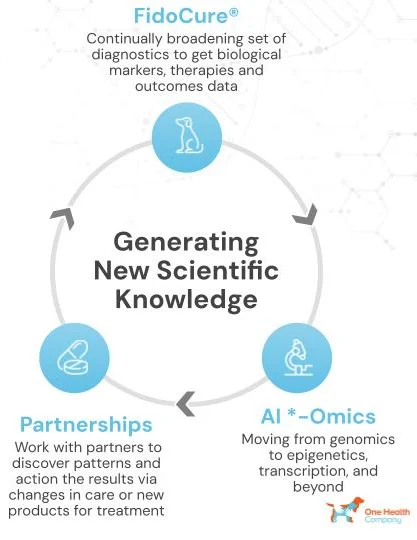De-risking
Drug R&D
Largest In Vivo Spontaneous Cancer Dataset and Clinical Trial Platform in the World with
2 Billion Datapoints
Our Science

Analyses of canine cancer mutations and treatment outcomes using real-world clinico-genomics data of 2119 dogs

Shared hotspot mutations in oncogenes position dogs as an unparalleled comparative model for precision therapeutics
TEDxBoston AI
Can dogs and AI fight cancer?

Veterinary oncology can inform human oncology, and vice versa — providing a better model for looking at drug performance, interrelationships, and more. Especially when you add in data (there’s no “doggy HIPAA!”) and networks to get a “living laboratory at scale”.
Listen to Amy Abernethy, advisor to One Health, on why she’s so excited about the impact of comparative oncology on our investor’s podcast The a16z Podcast.
Fireside Chat with Dr. Len Lichtenfeld, former Deputy Chief Medical Officer, American Cancer Society on 8-year Journey and Impact of AI Data
Hear first-hand about their 8-year journey together in the fight against cancer on both ends of the leash.
Oncology drug development is broken.
The canine model offers a unique and valuable perspective in the realm of medical research due to its significant advantages over the traditional mouse model. While mice models have been crucial in various studies, they come with a high failure rate when translating findings to human applications. Canine models, on the other hand, bridge the gap between preclinical research and clinical trials, serving as a more biologically relevant intermediary.

Only 3-6% Patients Enroll in Clinical Trials
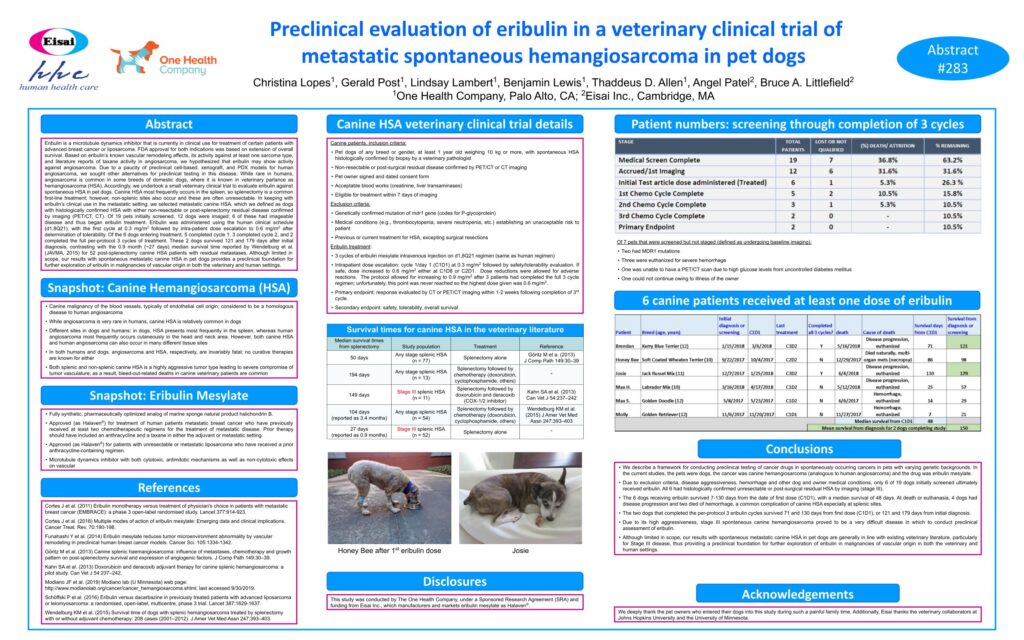
One Health canine data helped Eisai drug reach Phase 2 at Mass General
Our Canine Data in Hemangiosarcoma is concordant with human angiosarcoma.
AACR Journal
Today, with more data and ability to enroll the right canine cancer patient at the right time quickly, we can turbo charge human R&D and do what we did for Eisai 100x

Reimagining the Patient: Dog
Canine biology closely mirrors human physiology and genetics, making it an excellent model for studying complex diseases, such as cancer. This increased relevance and reliability in mimicking human responses make the canine model a promising avenue for enhancing the success rate of research and ultimately improving human health outcomes.
- Accelerated disease timeline
- No standard of cancer care
- Natural disease & intact immune system
- Shared environment with humans
Imbruvica Case Study:
Dog data gave signal to unshelve blockbuster drug
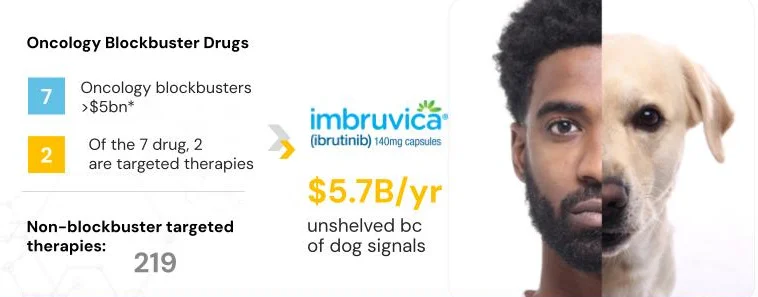
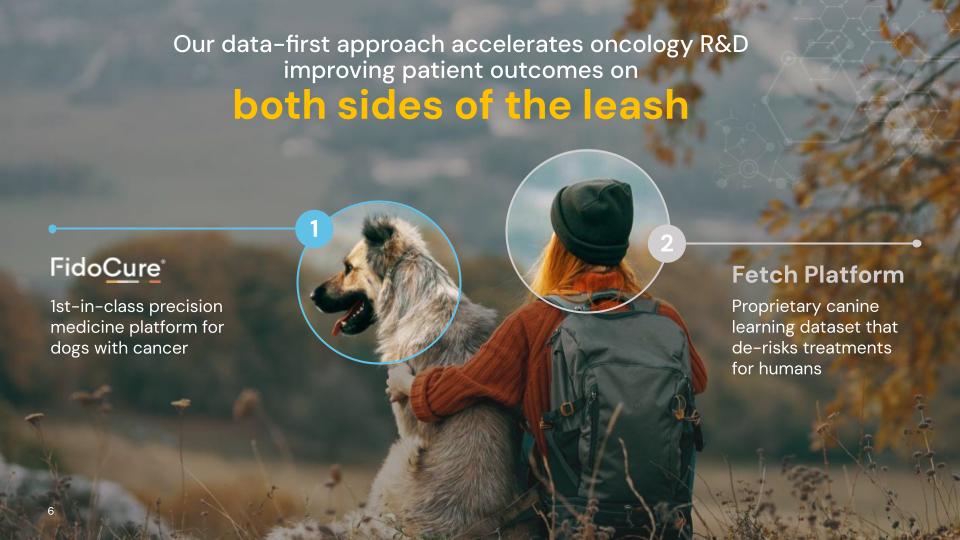
Oncology R&D on Both Sides of the Leash
Our Solution
- Canine Oncology Clinical Trials: a spontaneous disease model with genetic similarity to human tumors
- The largest canine cancer clinico-genomic dataset: banked tumor tissue and ability to rapidly identify biomarker-selected patients for prospective trials
- Access to longitudinal outcomes data in real time with repeat biopsy potential during treatment
- Extensive canine cancer network and expertise
The Impact
- Accelerate R&D through a better approximation of clinical disease in humans
- De-risk R&D pipeline by providing proof-of-concept animal model to help reduce late-stage failures
- Generate robust pre-clinical data to discover new predictive biomarkers and evaluate combination therapies for advancing novel treatments for human health
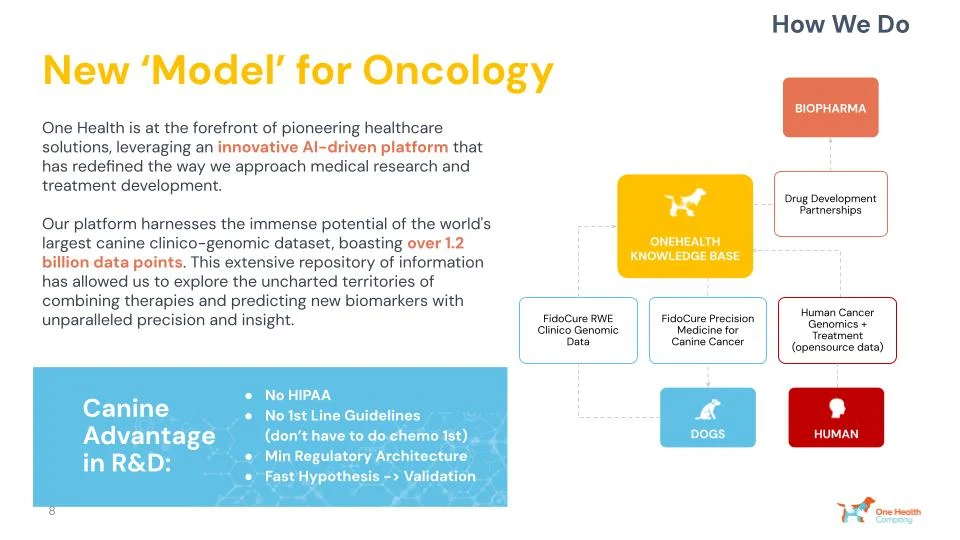
Our Most Valuable Asset: Data
